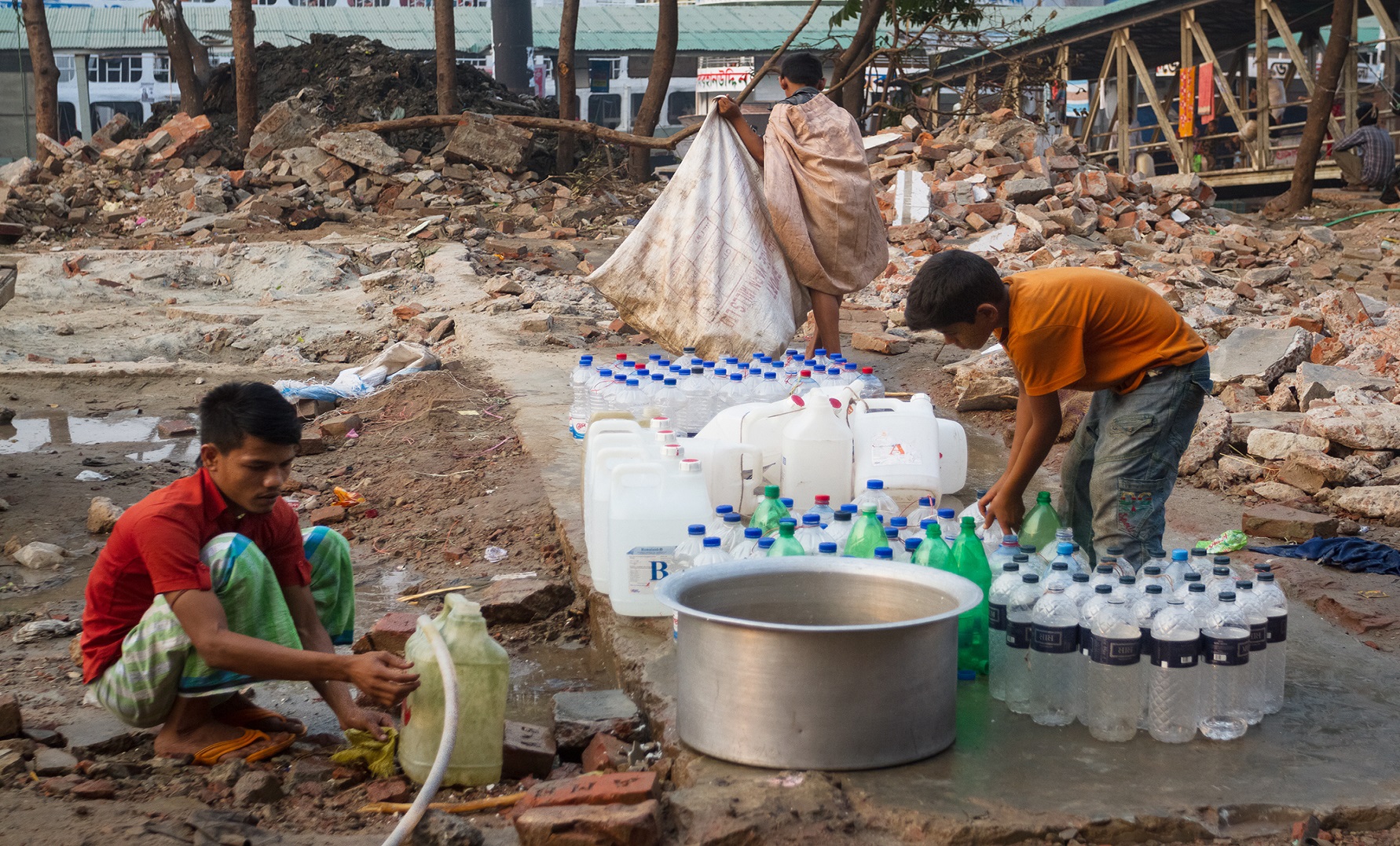Clean Water is a Scarce Resource for most of the world.
I take clear water for granted. I take long showers and let the water run until it is hot before I shave. For me, water does not seem to be a scarce resource. Economics is the study of managing scarce resources. Read this article written by our Pakistani contributor. You will realize just how valuable and scarce clean water is.
Clean water is a valuable resource. Some parts of the privileged world, take water for granted and waste, pollute and fail to conserve it. In Pakistan, we are deprived of this luxury and are pretty oblivious to any such practice.What is it like to live in a country with a shortage of water?
Let me tell you what it's like to live in a country with a shortage of water. This is my story, an average man in rural Faisalabad, Pakistan. I grew up where traditional agricultural practices coupled with water shortage for irrigation make the crops suffer. Without rain our canals are dry, and water does not reach the crops at the right time in the necessary quantities. We look up to the sky and pray for rain. Rain is free. Canals and tube wells have multiple claimants and are expensive. That contributes to Pakistan's shrinking production and our growing reliance on imports from India. The Department of Irrigation and Water Management Research Centre, University of Agriculture Faisalabad reports that only 31% of people's needs will be met by 2025. Pakistan needs to take steps to store and conserve water usage. Imran Rana writes, "Per capita water availability at the time of creation of Pakistan was 5,600 cubic meters, but it currently stands at only 1,000 cubic meters, placing Pakistan among water-scarce countries" in an article published in the March 23, 2013 edition of The Express Tribune.
How does water scarcity effect the economy?
Water scarcity leaves a deeper scar on the economy, as we have a water driven turbine system for electricity production at the dams in the North. We experience around 8 to 10 hours of electricity load shedding at our residences and businesses are no different. Without the power supply, our industries suffer greatly as there is a demand and supply gap. This scenario "if not properly managed, will directly affect the local ability to grow and create jobs." according to an economic analysis written in "growingblue.com".
Access to Clean Water is an issue.
Access to clean drinking water is an issue too. Illnesses due to water born diseases are wide spread, as anything that looks like water, even sludge, will do. Without clean water, illnesses become epidemic and then endemics. A sick nation does not perform efficiently and effectively. Without water to shower, street bathing at a pipe leakage near the Muhallah (community) is commonplace. Every Sunday, I go there with the boys... We come back home with canisters and bottles of water for our family. Often, I stand in long queues for water to do the dishes, cook, bathe, and carry out household tasks. Maintaining the family's health and hygiene is very difficult. It's like living in the prehistoric times, except that you know everything exists, but you don't have access to it.
The Hassan Foundation USA states that "Water borne diseases like Cholera, Typhoid, Hepatitis A and E and Diarrhea are widespread in the country. Not only backward rural areas face this menace, but the people in congested urban centers also suffer from water borne diseases." In a World Health Organization report included in the Hassan Foundation article it is reported that bacteria and parasitic conditions related to poor water contribute to between 25 and 35 percent of hospital admissions. Furthermore, water related diseases contribute to as many as 60% of infant deaths. The OECD Observer states "the failure to collect and treat polluted water to protect populations and aquatic ecosystems will lead to rising costs associated with illness and disease, which in turn will affect education and productivity, not to mention the loss of usable water resources, and ecosystem destruction." Only 0.2% of GDP is allocated to address our water supply and conditions. (Hassan Foundation) Clearly an ample clean supply of water is not a national priority.
Until the elected government does something about it, we write and register our protest to the people of the world!
Learn more:
Read our lesson Economics - Managing Our Scarce Resources, to learn more. It includes a scripture lesson on how we are called by God to manage our resources efficiently.
References:
http://hassanfoundationusa.org/pakistan-water-facts/
http://growingblue.com/implications-of-growth/economic-implications/
http://tribune.com.pk/story/524948/pakistan-to-face-31-water-shortage-by-2025/
http://oecdobserver.org/news/fullstory.php/aid/2845/Water_and_the_economic_crisis.html
